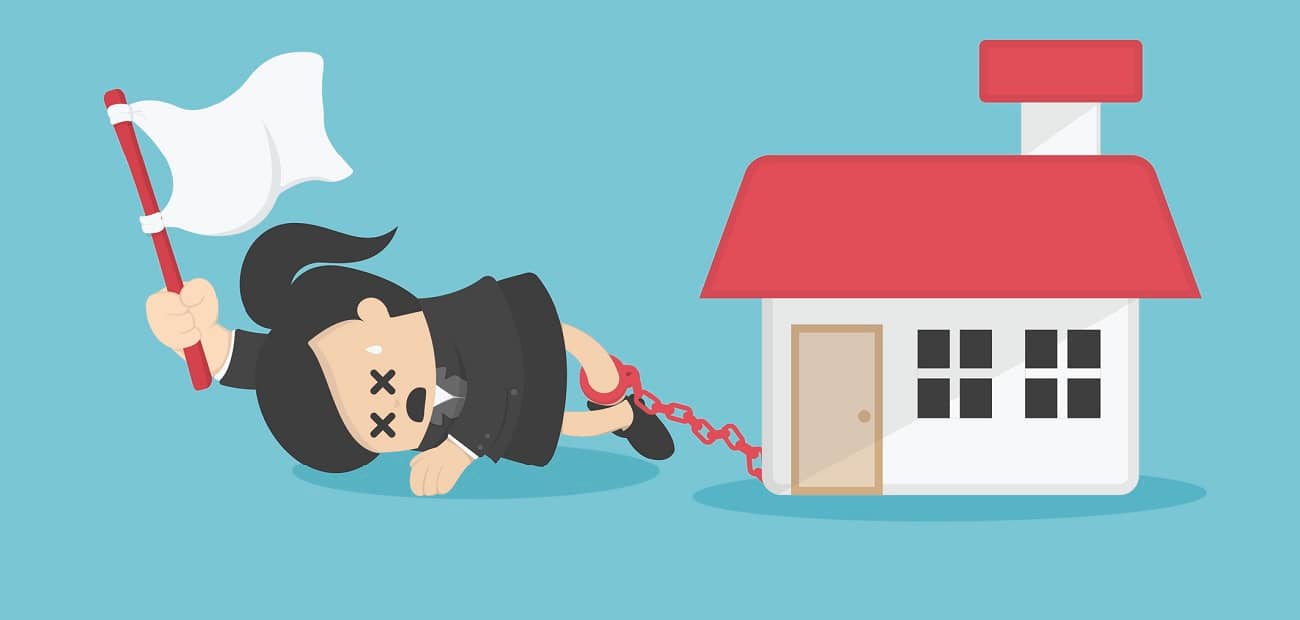Home Buyer’s Remorse
Have you ever bought something on the spur of the moment then later on you ask yourself.. “what was I thinking? I don’t even like or need it”. In most cases, you can usually return the items like an expensive shirt or an ugly painting as long as you have the receipt. However, if you paid cash and bought it from someone’s trunk in a parking lot, then you’re probably stuck with it.
Unfortunately, you can’t do this when you buy a home which makes the home buying process even more stressful. Purchasing a property is a big deal for any family. Not only is this is the place they will call home for years to come but is probably the biggest or one of the biggest investments of someone’s lifetime.
In today’s competitive housing market where you have bidding wars on a very limited amount of inventory, it’s easy to get caught up in the frenzy of wanting to be the one to “win” the home. Sometimes new homeowners will start to have serious regrets about the huge purchase they just made just days or maybe even hours after the closing. Oh No! What Have We Done!?
There are several things a potential home buyer can do to avoid going through buyer’s remorse…
Look at several properties that meet your criteria.
Even if you love the first home your realtor shows you it would be wise to visit several homes that meet or come close to meeting your criteria. Sometimes you think that you’ve found exactly what you’ve been looking for then you go see another home and you like it even better!
Don’t fall in love until the negotiations are done!
From my own personal experiences, I know this is a hard one to do but it must be done. Let’s say you put a fair offer on a home that you really like. Then after a few rounds of offers and counteroffers, the price has gone up another $30,000 more than what you can spend.
If you’ve already fallen in love with the house, then you are done…your mind will find a way of justifying the price increase and you’ll probably do whatever it takes to get the house even though you can’t really afford it.
Keep your best poker face throughout the negotiations. Tell your realtor what your budget is and stick to it! You’ll be glad you did.
Go see the home several times.
You should go and see the home several times before buying. Seeing the home only once before buying is a sure fire recipe for buyer’s remorse. Go through the home slowly and methodically, Open every door and window, walk through every room and leave no stone unturned.
I also suggest visiting the home at night for a another perspective. Don’t be afraid of bothering you realtor. Your real estate agent is getting paid to do their job, so make them earn it.
Make sure you have an inspection contingency.
Your best insurance is to make sure that there’s an inspection contingency in the contract. Some agents call it the “buyers remorse” contingency and it allows you to get out of the agreement if there’s a serious issue with the property you didn’t know before making your offer.
Hire An Experienced Buyer’s Agent
Enlisting the help of a realtor that is experienced in the area that you want to purchase in it will make your home buying experience much easier and even pleasurable. Let your agent know about any concerns or questions you have about a particular property or situation.
A good realtor will help you navigate through the entire home buying process as well as advise you of what to watch out for.







